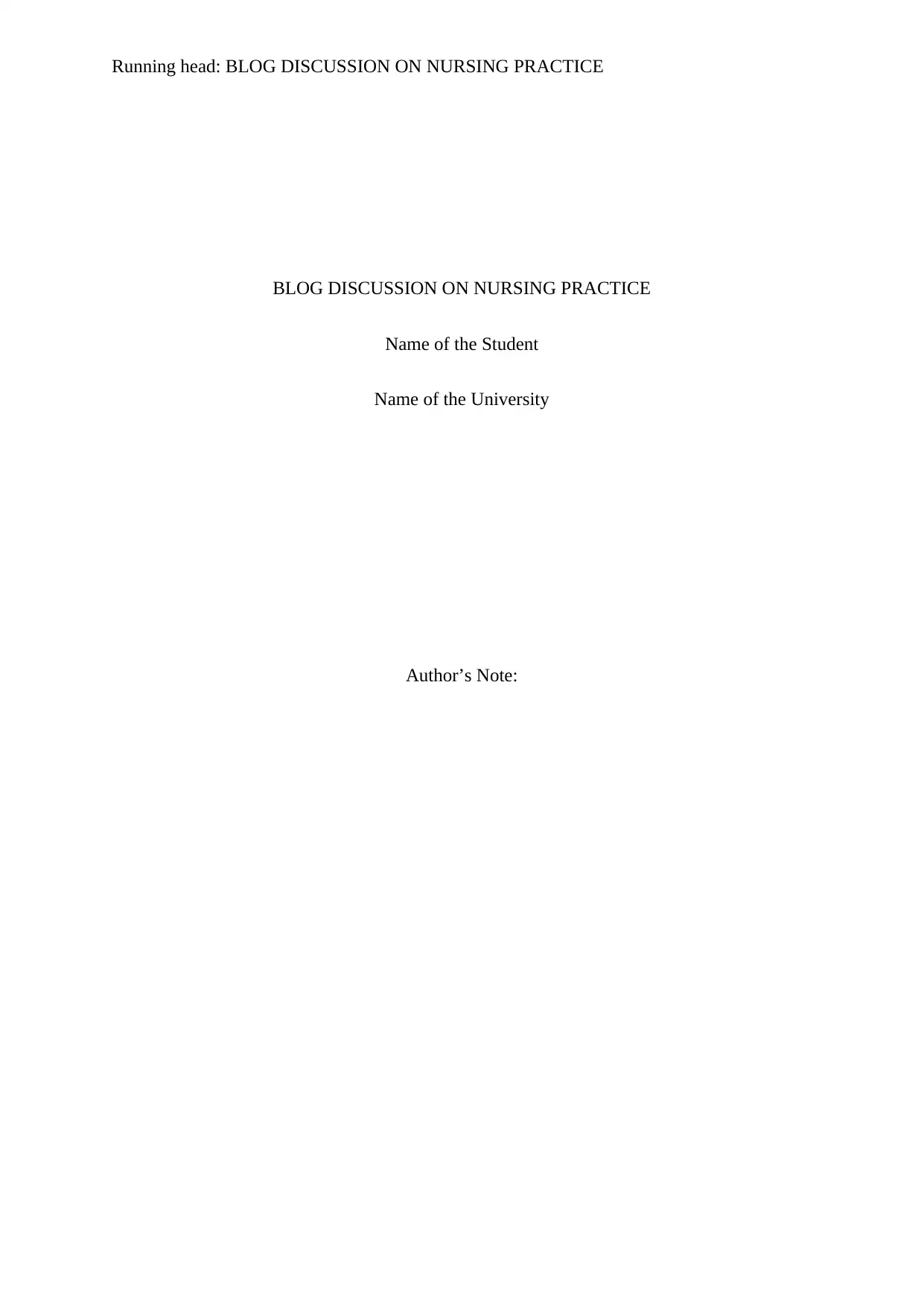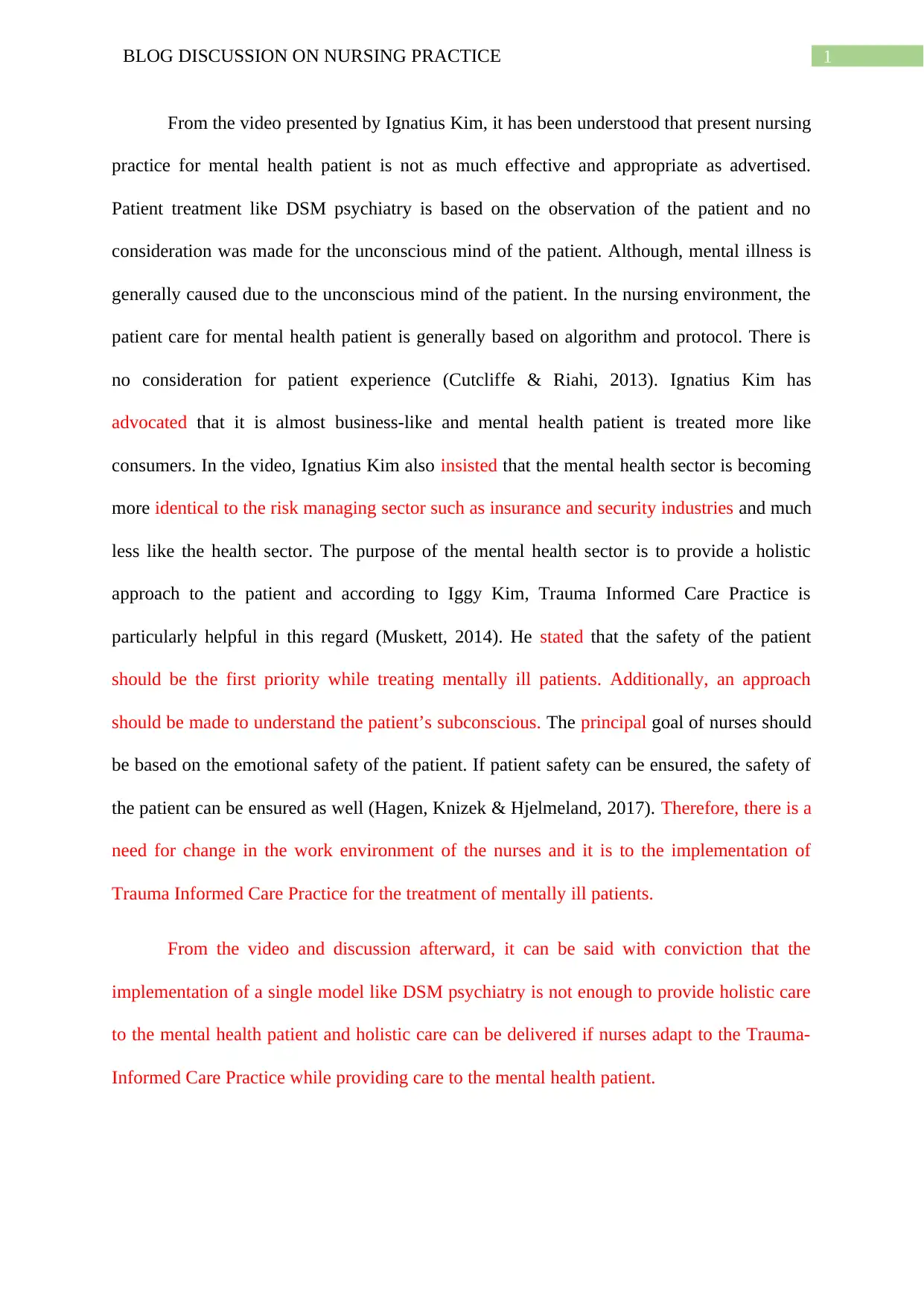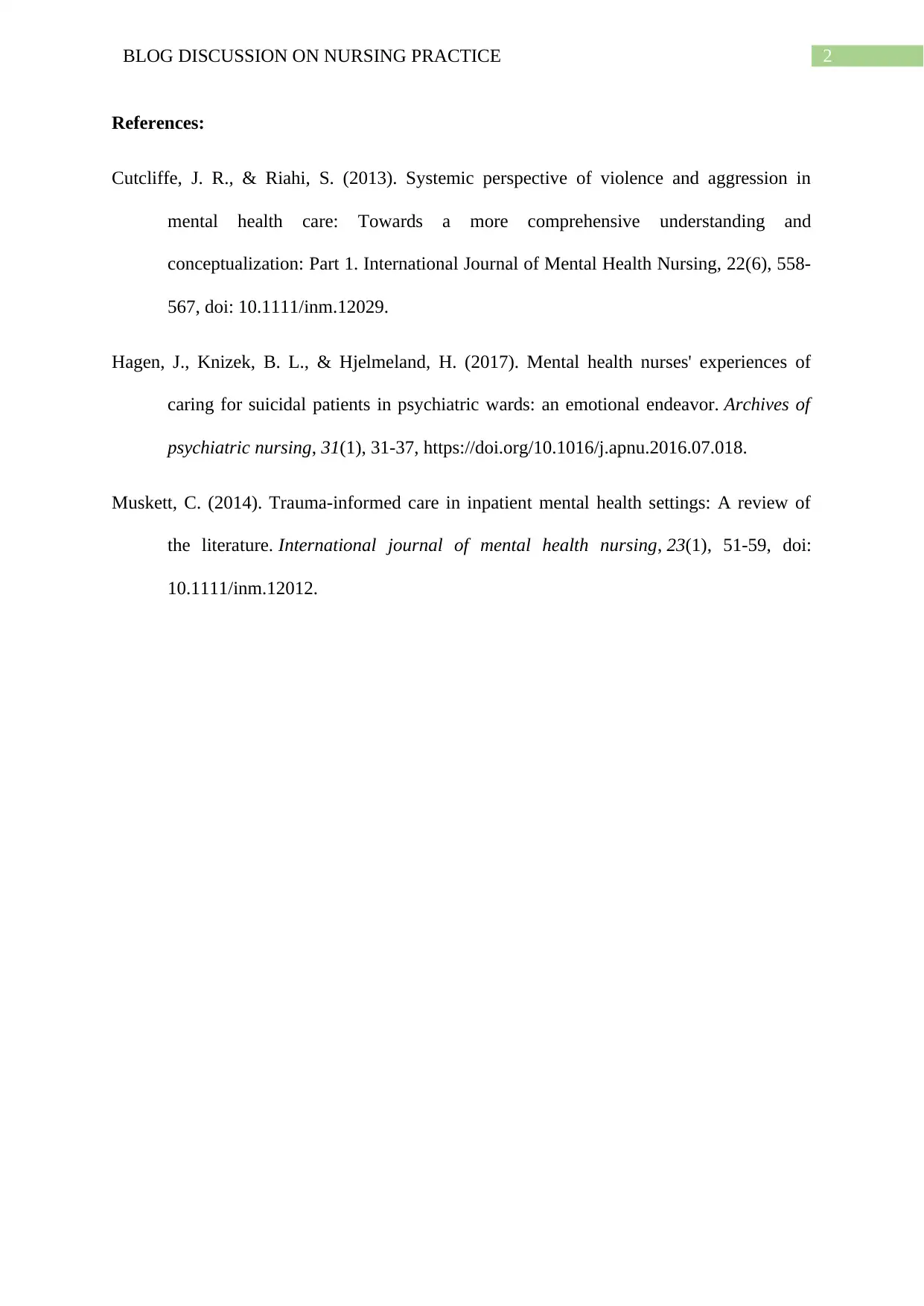University Nursing Practice Discussion: Mental Health Patient Care
VerifiedAdded on 2023/04/21
|3
|551
|437
Discussion Board Post
AI Summary
This discussion post delves into the current state of mental health nursing, critiquing the limitations of practices like DSM psychiatry and advocating for a more holistic approach. The author, drawing from a video presentation, highlights the need for Trauma Informed Care to prioritize patient safety and address the patient's unconscious mind. The post emphasizes the importance of shifting the focus from a business-like model to a more patient-centered approach, ensuring the emotional well-being of patients. It references key literature to support the argument that a comprehensive understanding of mental illness, coupled with a focus on patient safety, is crucial for effective mental health care. The author suggests that integrating Trauma Informed Care into nursing practice is essential for providing the best possible care to mentally ill patients.
1 out of 3




![[object Object]](/_next/static/media/star-bottom.7253800d.svg)